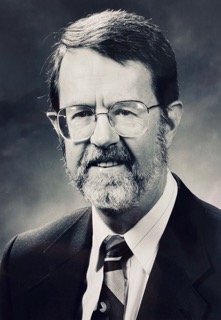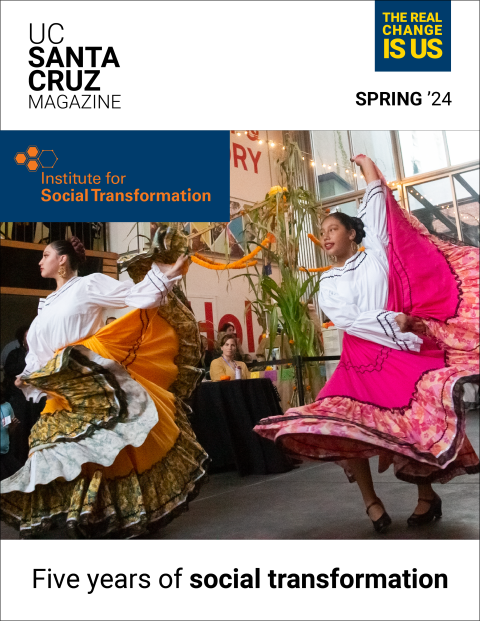The Department of Chemistry and Biochemistry is deeply saddened to announce that our colleague, Distinguished Professor Claude F. Bernasconi, passed away on January 4, 2021, from complications due to COVID-19. He died peacefully surrounded by those he loved.
Claude was born in Zürich, Switzerland, in 1939. He received his undergraduate degree and Ph.D. (1965) from the Swiss Federal Institute of Technology (ETH) under the direction of Prof. Zollinger. He also co-published a paper in 1965 in the prestigious Journal of the American Chemical Society based on work he carried out at Brown University with the late UCSC Prof. Joseph F. Bunnett. Following a postdoctoral appointment with Nobel Laureate Manfred Eigen at the Max-Planck Institute for Physical Chemistry in Göttingen, Germany, Claude joined the faculty at UC Santa Cruz in 1967 as an assistant professor. He retired in 2014 with the status of professor emeritus.
As one of the founders of the department, Claude left his mark on every aspect of the developing new institution. He set the tone for excellence in research and teaching from which we all continue to benefit today. As department chair from 1976 to 1978, he was responsible and deeply involved in the hiring of the next cohort of early faculty members. Claude set an example of steady and caring leadership while emphasizing excellence in scholarly research, publishing a continuous stream of high-impact papers.
Claude’s remarkable research career spanned more than five decades and included contributions well beyond his particular research area. In 1976, he published the influential textbook Relaxation Kinetics. While his research was focused on the kinetics and mechanisms of organic reactions with emphasis on structure-reactivity questions, his rigorous approach to analyzing reaction rates contributed to many later developments in theoretical and physical organic chemistry. His discovery of the principle of non-perfect synchronization in several types of reactions—such as nucleophilic addition/substitution reactions, Fischer carbene complexes, and proton transfers reactions—are significant examples of his groundbreaking research findings.
Claude’s many contributions to the field of physical organic chemistry were recognized in a prestigious Alfred P. Sloan Fellowship and election as a Fellow of the American Association for the Advancement of Science. His work at UCSC received continuous support over 5 decades from the National Science Foundation. In 2001, the department recognized his contributions and collegiality by honoring him as the first speaker in the annual Joseph F. Bunnett Research Organic Chemistry Lecture, which continues to this day as an eminent series of research presentations.
Claude was also recognized as a gifted, caring, and very organized teacher. His classroom lectures were recognized as masterful demonstrations of rigor, depth, and organization that were inspiring to his students and colleagues. Typical quotes from thousands of students’ comments about his teaching include phrases such as, “Claude is the best” and, “His teaching is perfect.”
Beyond his work in the lab and the classroom, Claude was admired for his collegiality and for his support of the department’s and university’s activities. He chaired the Academic Senate Committee on Academic Personnel for several years. After his retirement in 2014, he continued research and interaction with the department’s faculty and students. He was also active in the UCSC Emeriti Association, chairing the Honors and Awards Committee for four years.
Claude is survived by his three children, Andrea, Marc, and Janette; four grandchildren, Jackson, Emmett, Martin and Isabel; his sister Silvia and niece Miriam, and wife Arlene Ramsay. He is also survived by his first wife, Regula Bernasconi-Kiss, and his second wife, Anastasia (Tessi) Kanavarioti, both of whom remained friends, attesting to his kind and caring character.
Claude deeply enjoyed teaching, learning, spending time with his family, and traveling. He was able to enjoy many activities in his retirement, such as becoming a student himself, taking a wide range of university classes, playing chess, and traveling around the world, which gave him great pleasure and insights into history and other cultures and lifestyles. What brought him the most pleasure was being surrounded by his family, especially his grandchildren.



